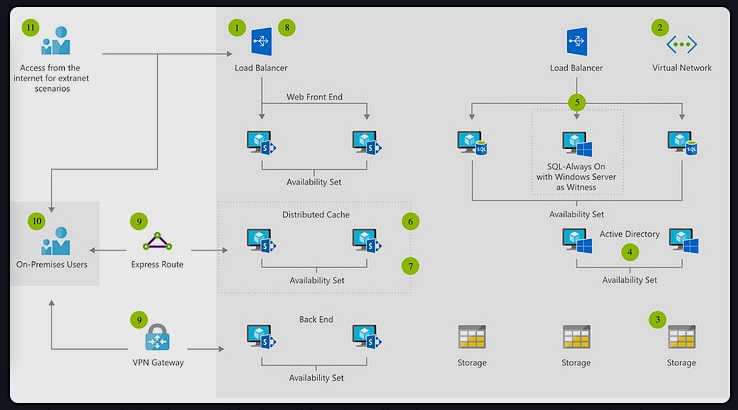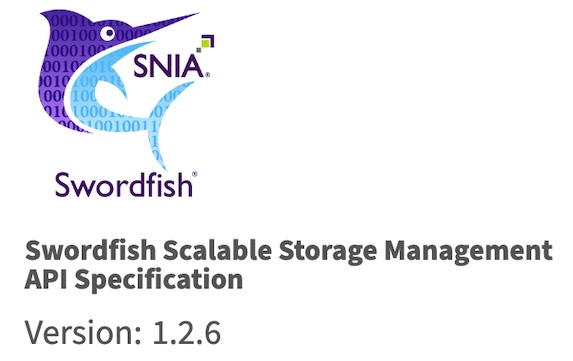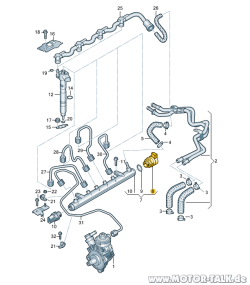Irgendwie kam gestern alles soweit wie erwartet. Der Sicherheitsrat der Vereinten Nationen hat eine Resolution beschlossen, die eigentlich nicht wirklich was Neues beinhaltet und daher vor allem von symbolischer Bedeutung ist (China hat mitgestimmt und Nordkorea damit gezeigt, dass es nicht gewillt ist, weitere Renitenz aus Pjöngjang bedingungslos zu akzeptieren). Jede der im Sicherheitsrat beteiligten Parteien versucht die Resolution als Erfolg zu verkaufen. Die USA als “neue Sanktionen” (was de facto nicht geschehen ist, denn eigentlich handelt es sich um eine Neujustierung bestehender Sanktionen (Absatz 5) und eine Weiterentwicklung der Umsetzungsmechanismen (Absatz 7)) und China als Aufruf zu einer friedlichen Konfliktlösung im Rahmen der Sechs-Parteien-Gespräche (der auch schon in den vorherigen Resolutionen enthalten war). Auch Nordkorea reagierte wie es vorherzusehen war mit scharfer Rhetorik, aber ganzschön zügig, wie ich finde (wenn ich mich recht erinnere, hat man sonst immer nen halben bzw. ganzen Tag zum Reagieren gebraucht. Dieses Mal kam es relativ unmittelbar).
Im Norden nichts Neues
Wer ein Gedächtnis hat, das länger als ein paar Monate zurückreicht, der kennt diese Mechanismen und der weiß auch, dass nach UN-Resolutionen hysterisch klingende Reaktionen aus Pjöngjang erfolgen. Dazu gehört auch immer eine Aufzählung von Klarstellungen bzw. Maßnahmen, die von einem Sprecher des Außenministeriums bekanntgegeben wird und die für gewöhnlich eine totale Ablehnung der Resolution enthält und eine Verstärkung der Verteidigungskapazitäten ankündigt. Der explizite Verweis auf den Ausbau der nuklearen Verteidigungskapazitäten macht die ganze Sache noch ein bisschen bedrohlicher, aber das ist auch nicht neu und naja, warten wir ab, ob das ein Vorausblick auf einen angeblich ja angekündigten Nukleartest in näherer Zukunft ist oder einfach nur das Spielen mit dem Gerücht.
Ihr mögt euch jetzt fragen, warum ich euch mit so viel nicht-neuem und nicht-spektakulärem bombardiere, aber einerseits finde ich die Resolution des Sicherheitsrates trotz der Vorhersehbarkeit des Fortgangs nicht unbedeutend (der Schritt zu einer weiteren Resolution gegen Nordkorea, sollte es näherer Zukunft einen Nukleartest geben, ist wesentlich kleiner, auch für China), andererseits ist mir an der Reaktion des nordkoreanischen Außenministeriums ein Detail aufgefallen, dass ich durchaus interessant finde.
Die Sache mit der Autorisierung
Reagierte das nordkoreanische Außenministerium nämlich in der Vergangenheit auf Resolutionen des Sicherheitsrates der Vereinten Nationen, u.a. mit der Verkündigung von Maßnahmenkatalogen, dann gehörte in den Prätext der Kataloge immer der Hinweis, dass man dazu autorisiert sei. In den drei Fällen solcher Maßnahmenankündigungen die ich gefunden habe hieß es:
- “The Foreign Ministry of the DPRK is authorized to clarify as follows…”
- “The DPRK Foreign Ministry is authorized to solemnly declare as follows…”
- “Upon authorization, the Ministry of Foreign Affairs of the DPRK strongly condemns and rejects the UNSC “resolution 1874″ and declares”
Naja, und wenn man sich die aktuelle Reaktion anguckt, dann fehlt darin vollkommen der Hinweis auf eine Autorisierung. Ich weiß nicht, ob man das politisch interpretieren kann (das kommt vermutlich auch ganz stark auf die Formulierung im Original an), aber ich finde es schon auffällig, denn wenn man sonst immer darauf geachtet hat, auf die Autorisierung hinzuweisen, dann kann das Gründe gehabt haben. Zum Beispiel kann es dem Autorisierenden wichtig gewesen zu sein zu zeigen, dass das Außenministerium nicht selbstständig agiert, sondern dass ein höher stehendes Organ das angeordnet hat. Allerdings ist es natürlich auch möglich, dass das einfach eine Füllphrase ist oder dass es sogar von dem Übersetzer hinzugefügt oder weggelassen wurde.
Wenn dem aber nicht so wäre, dann könnte man aus dieser fehlenden Autorisierung sowas wie einen Zugewinn von Eigenständigkeit des Außenministeriums herauslesen. Entweder nimmt es sich tatsächlich die Freiheit, Statements ohne Autorisierung zu veröffentlichen, oder es findet es nicht mehr so wichtig, auf diese Autorisierung hinzuweisen. Beides wäre interessant. Übrigens war auch schon die Reaktionen des Außenministeriums auf das Presidential Statement des Sicherheitsrates der Vereinten Nationen im April letzten Jahres nach dem damaligen Raketentest nicht mit einem Hinweis auf eine Autorisierung versehen, obwohl es auch damals einen Maßnahmenkatalog gab, der übrigens ziemlich identisch mit dem war, was zuvor verkündet wurde.
Wer autorisiert hier wen?
Daneben würde es mich mal interessieren, wer genau die Statements autorisiert. Meistens ist nur ein Hinweis darauf zu finden, dass es eine Autorisierung gab. Von wem allerdings nicht. In Frage käme natürlich der Supreme Leader, oder aber die Nationale Verteidigungskommission, die eigentlich für Fragen des Nuklear- und Raketenprogramms zuständig ist, oder ich weiß nicht wer. Aber vielleicht sind denen, die die Statements verfassen die formalen Strukturen im Land ja auch so unklar, dass sie lieber nicht dazuschreiben, in welcher Funktion wer jetzt seine Autorisierung gegeben hat und man schreibt einfach dazu, dass es eine solche gab.
Wenn man es ganz genau nimmt…
Interessant finde ich übrigens, dass Kim Yong-nam in der Funktion als Präsident der Obersten Volksversammlung, formal das höchste Amt im Staat, in diesem Jahr eine Rede vor den Blockfreien hielt, die ebenfalls von irgendwoher autorisiert war. Wer da in Frage kommt weiß ich nicht genau, aber rein formal vermutlich nur Kim Il Sung und vielleicht Kim Jong Il (ich kenne die neueste Version der Verfassung leider nicht), allerdings gibt es bei der Kontaktaufnahme zu Beiden kleinere praktische Probleme. In der Verfassung von 1998 (Artikel 112) wird das Präsidium der Obersten Volksversammlung als “das höchste Machtorgan zwischen den Tagungen der Obersten Volksversammlung” beschrieben. Verantwortlich ist es einzig der Obersten Volksversammlung. Da die aber 2012 nur zweimal zusammentrat (April und September, halte ich eine Autorisierung von dort eher für Unwahrscheinlich. Aber sei’s drum. Vermutlich habe ich das System einfach nicht richtig durchschaut. Wenn einer von euch mehr über das Autorisationswesen in Nordkorea weiß und sachdienliche Hinweise geben kann, dann würde ich mich freuen…
Anhang
Achja, für die, die der Text von Resolution 2087 gegen Nordkorea und der Text der Reaktion des Außenministeriums (mit oder ohne Autorisierung interessiert, hänge ich das an):
The full text of resolution 2087 (2013) reads as follows:
“4. Reaffirms its current sanctions measures contained in resolutions 1718 (2006) and 1874 (2009);
DPRK Refutes UNSC’s “Resolution” Pulling Up DPRK over Its Satellite Launch
Pyongyang, January 23 (KCNA) — The DPRK Foreign Ministry Wednesday issued the following statement:
The DPRK’s successful launch of satellite Kwangmyongsong 3-2 in December last year fully demonstrated its space science and technology and its overall national power. This is a stark fact favored by the world and recognized even by hostile forces, including the United States.
In the wake of desperate efforts on the part of the U.S. and its followers to block the victorious advance of the DPRK, they cooked up a “resolution” of the UN Security Council on Tuesday in wanton violation of the inviolable sovereignty of the DPRK.
The U.S.-sponsored “resolution” is run through with hostile steps aiming at banning the DPRK’s satellite launch for peaceful purposes and tightening “sanctions” against it to block its economic development and hamstring its effort for developing the economy and bolstering up defence capability.
The above-said countries insist that the DPRK’s satellite launch is problematic, asserting that “it uses ballistic missile technology” though they know better than any others about the fact that ballistic missile technology is the only means for launching satellite and they launch satellites more than any others. This is self-deception and the height of double-standards.
The essence of the matter is the U.S. brigandish logic that a satellite launch for peaceful purposes by a country which the U.S. antagonizes should not be allowed because any carrier rocket launched by it can be converted into long-range ballistic missile threatening the U.S.
The UNSC is a marionette of the U.S.
The UNSC “resolutions” adopted under the pretext of the DPRK’s satellite launches are products of its blind pursuance of the hostile policy of the U.S. seeking disarmament of the DPRK and collapse of its social system in violation of the universally accepted international law.
Repeating wrongdoings without courage or responsibility to rectify them are despicable behaviors of cowards deceiving themselves and others. They are putting the peace and stability on the Korean Peninsula and in the region at greater peril.
The present situation clearly proves that the DPRK should counter the U.S. hostile policy with strength, not with words and that the road of independence and Songun chosen by the DPRK is entirely just.
To cope with the prevailing situation, the DPRK Foreign Ministry declares as follows:
First, the DPRK flatly rejects the unjust acts of the UNSC aimed at wantonly violating the sovereignty of the DPRK and depriving it of the right to launch satellites for peaceful purposes.
The hostile forces are seriously mistaken if they think they can bring down the DPRK with sanctions and pressure, and such an attempt will always bring them a disgraceful defeat.
The UNSC should apologize for its crime of seriously encroaching upon the independence of a sovereign state, following the U.S. policy hostile to the DPRK in disregard of the universally recognized international law, and repeal all the unreasonable “resolutions” at once.
Second, the DPRK will continue to exercise its independent and legitimate right to launch satellites for peaceful purposes while abiding by the universally recognized international law on the use of space for peaceful purposes.
Scientists and technicians of the DPRK will develop and launch many more application satellites, including communications satellite, and more powerful carrier rockets essential for building an economic giant in the same spirit and mettle as were displayed in successfully launching satellite Kwangmyongsong 3-2.
The DPRK will continuously launch satellites for peaceful purposes to conquer space and become a world-level space power.
Third, the DPRK drew a final conclusion that the denuclearization of the Korean Peninsula is impossible unless the denuclearization of the world is realized as it has become clear now that the U.S. policy hostile to the DPRK remains unchanged.
The September 19 joint statement adopted at the six-party talks on the principle of respect for sovereignty and equality has now become defunct and the prospect for the denuclearization of the Korean Peninsula has become gloomier, due to the U.S. hostile policy to the DPRK that has become evermore pronounced.
There may be talks for peace and stability of the Korean Peninsula and the region in the future, but no talks for the denuclearization of the peninsula.
Fourth, the DPRK will take steps for physical counteraction to bolster the military capabilities for self defence, including the nuclear deterrence, both qualitatively and quantitatively to cope with the evermore undisguised moves of the U.S. to apply sanctions and pressure against the DPRK.
The revolutionary armed forces of the DPRK will reliably defend the security and sovereignty of the country and safeguard the regional peace and stability with the might of Songun. They are full of the steadfast will to take a bold step to root out the source of provocations the hostile forces seek to continue against the DPRK.
No force on earth can block the progress of the great people proud of independence, powerful thanks to Songun politics and united closely on the basis of truth. -0-
Einsortiert unter:Aktuelles, Die UN und Nordkorea, Die Welt und Nordkorea, Nordkorea, Personalia, Regimestabilität Tagged: Kim Yong-nam, Nordkorea, Resolution 2087, Sicherheitsrat der Vereinten Nationen













